To Overwinter Peppers & Tomatoes Or Not – That Is The Question…
One of the benefits of growing vegetables in zone 9 is that we are able to grow vegetables all year long.
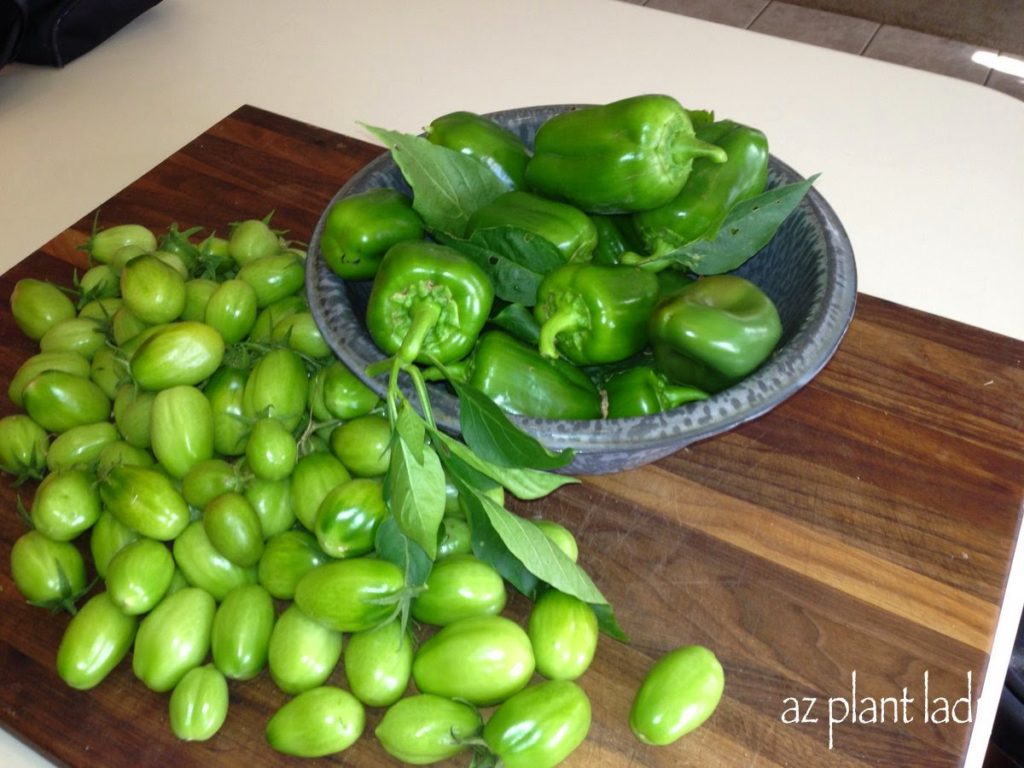
However, despite our relatively mild winters, warm-season vegetables such as peppers and tomatoes can’t handle temperatures when they dip below freezing. So just before freezing temperatures hit, I run out to the garden and pick off all our tomatoes and peppers before pulling out the plants.
Of course, there is nothing wrong with doing this – I’ve done it for years.
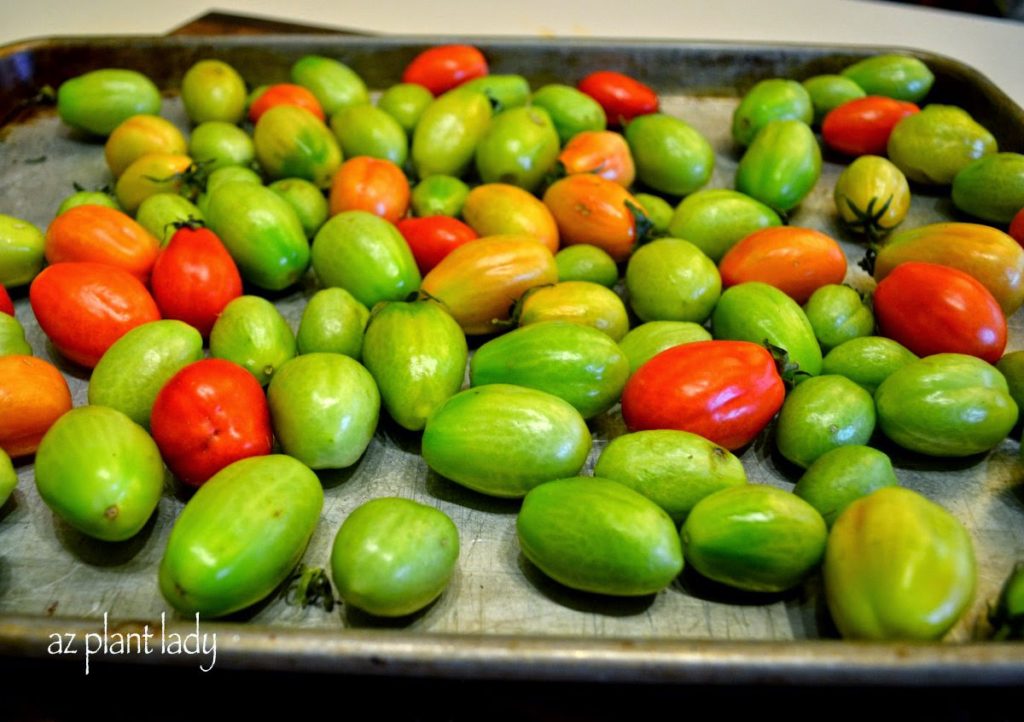
I allow my green tomatoes to ripen indoors – click here to see how.
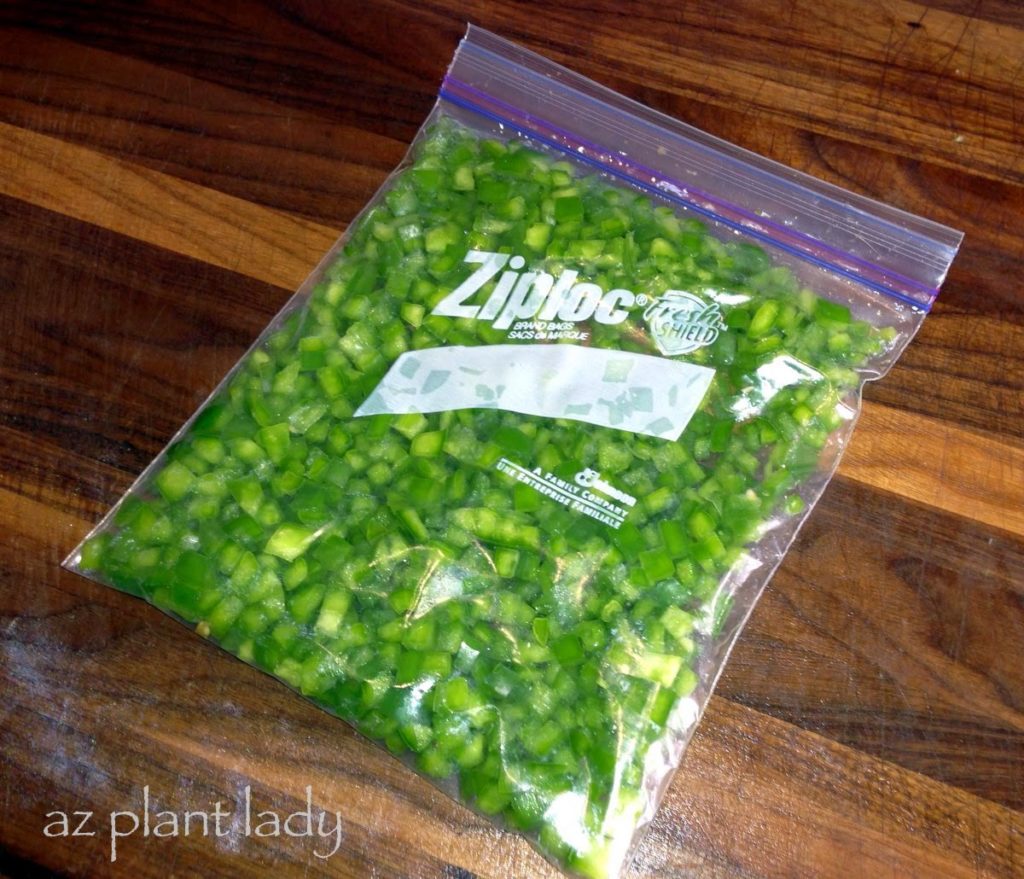
I then dice my green peppers, place them in a freezer bag and keep them in the freezer where I can use them whenever I make my kid’s favorite Mexican rice for dinner.
A few years ago, I decided to try to overwinter my tomato and pepper plants instead of pulling them out.
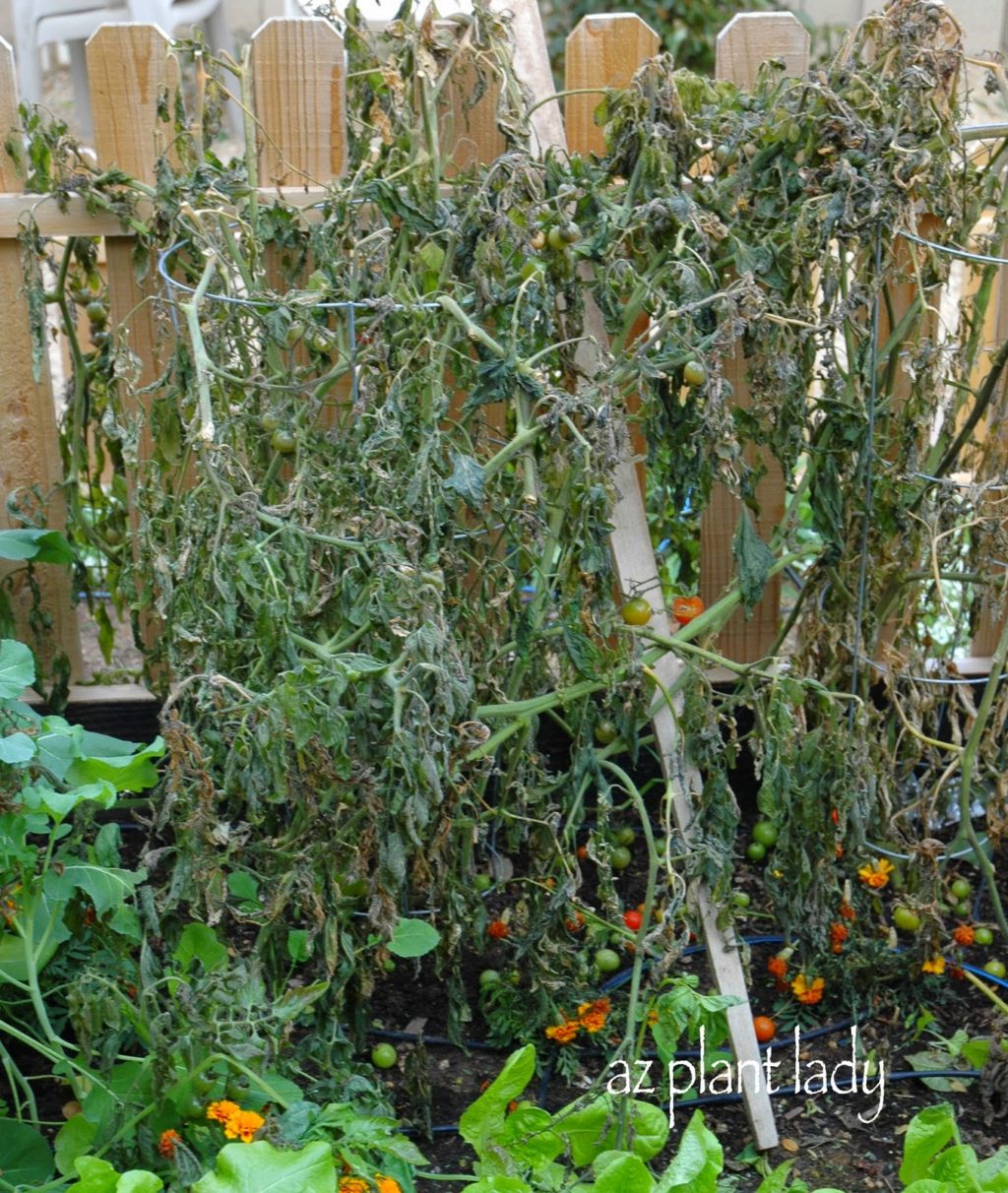
This is what my tomatoes looked like with no frost protection. That was no surprise.
But the next year, I decided to protect my tomatoes & peppers by covering them with old sheets when temperatures dipped below 32 degrees.
I even went one step further and hung an outdoor light underneath the sheets.
To my surprise, both my tomato and pepper plants came through the winter just fine, with a small amount of frost damage, and I had an early start to the growing season.
It was a lot of work though – having to cover them and uncover them whenever temperatures dipped below freezing.
Also, that winter was a relatively mild one and temperatures never strayed below the upper 20’s. However, we do occasionally experience temperatures that dip in to the low 20’s and in that case, protection or not, the peppers and tomatoes would most likely die whether or not they were protected.
So, do I still try to overwinter my tomato and pepper ?
The answer is “yes”and “no”.
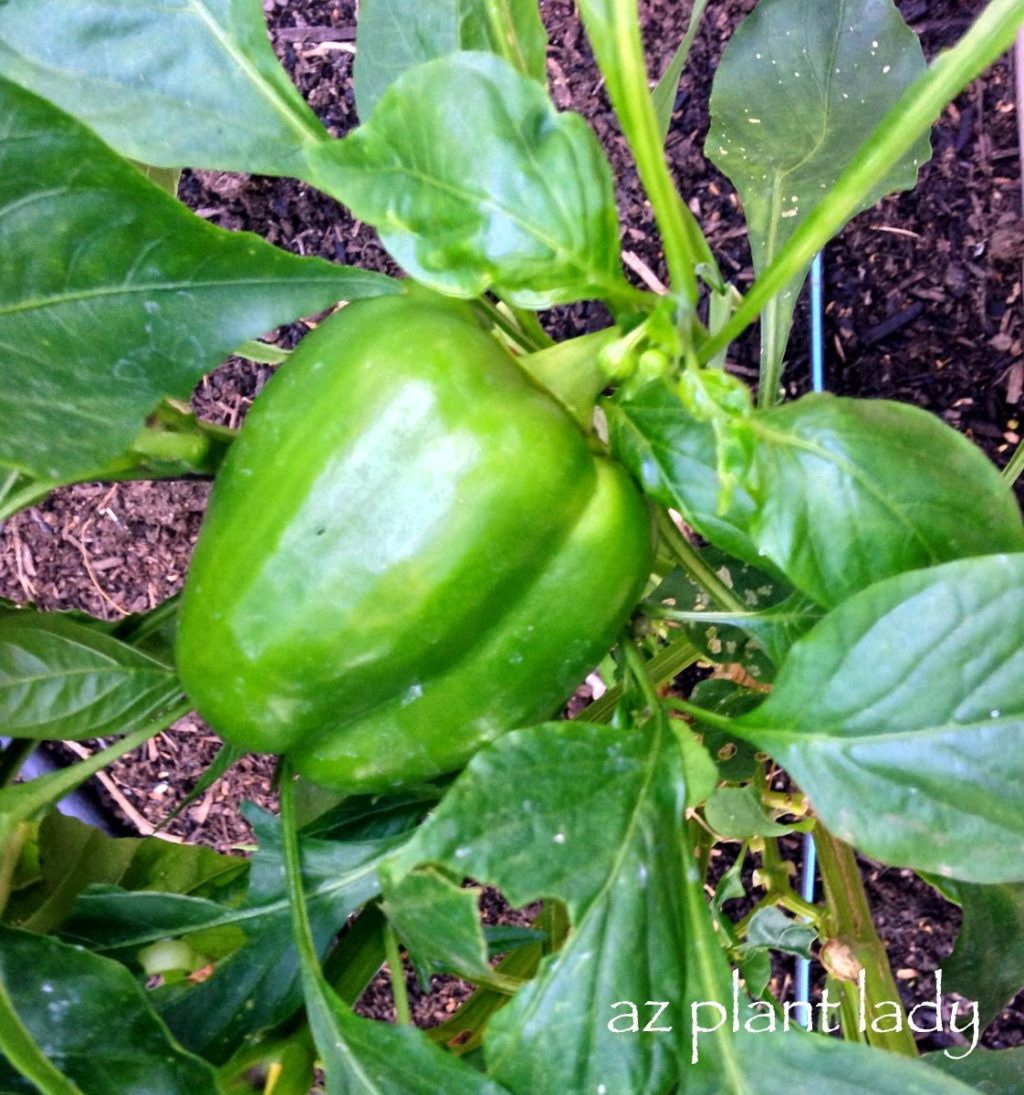
I do throw sheets over my peppers, but not my tomatoes. The reason is that tomatoes are slightly more sensitive to the cold.
If we were to experience temperatures in the low 20’s, my 2-year old pepper plants would most likely not survive. But, that is what it is like to grow vegetables – you try your best, but sometimes it’s not enough.
**Have you ever successfully overwintered a warm-season vegetable?**

 Noelle Johnson, aka, 'AZ Plant Lady' is a author, horticulturist, and landscape consultant who helps people learn how to create, grow, and maintain beautiful desert gardens that thrive in a hot, dry climate. She does this through her consulting services, her online class Desert Gardening 101, and her monthly membership club, Through the Garden Gate. As she likes to tell desert-dwellers, "Gardening in the desert isn't hard, but it is different."
Noelle Johnson, aka, 'AZ Plant Lady' is a author, horticulturist, and landscape consultant who helps people learn how to create, grow, and maintain beautiful desert gardens that thrive in a hot, dry climate. She does this through her consulting services, her online class Desert Gardening 101, and her monthly membership club, Through the Garden Gate. As she likes to tell desert-dwellers, "Gardening in the desert isn't hard, but it is different."









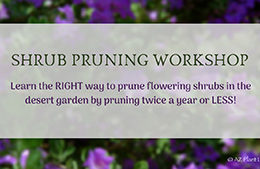

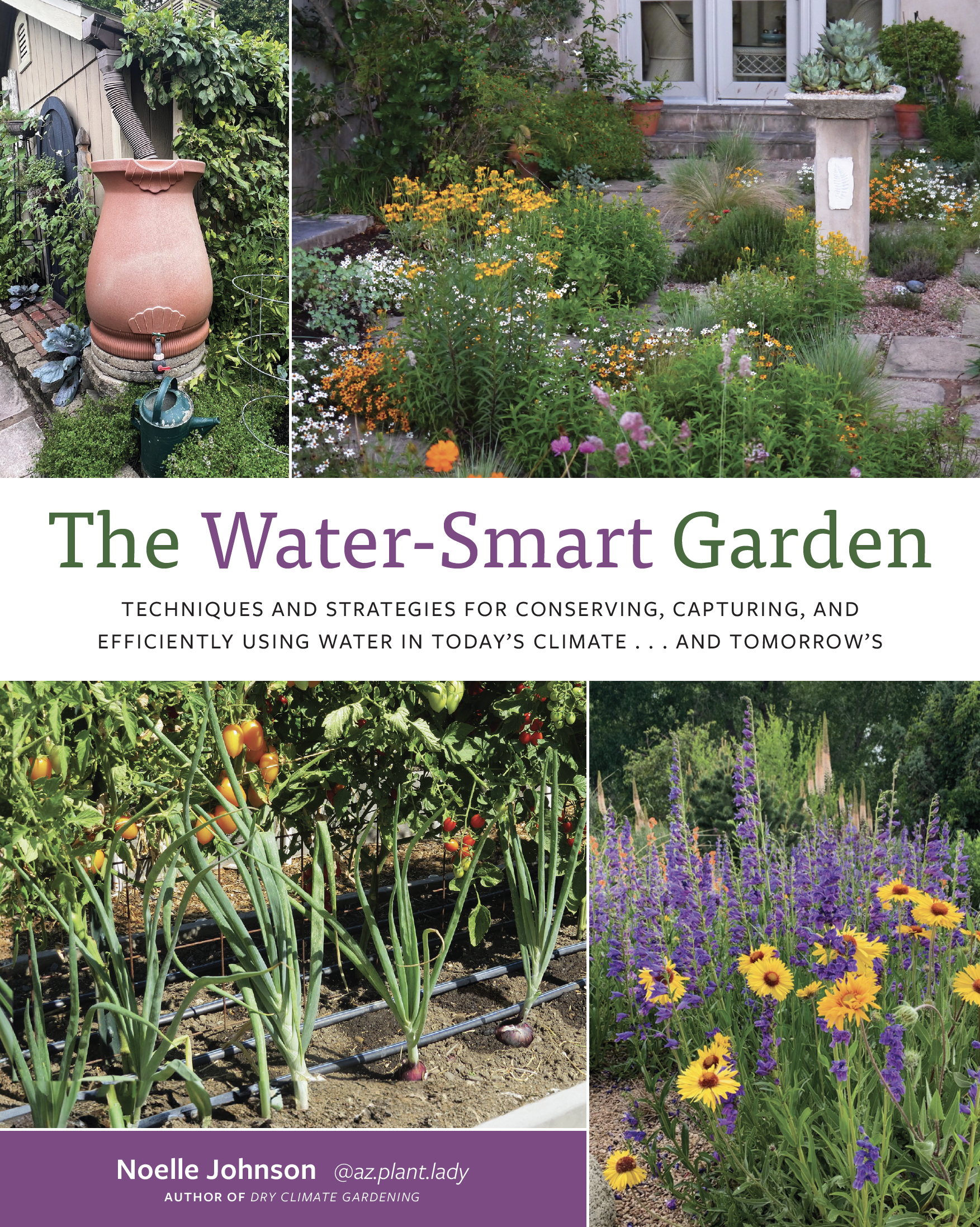
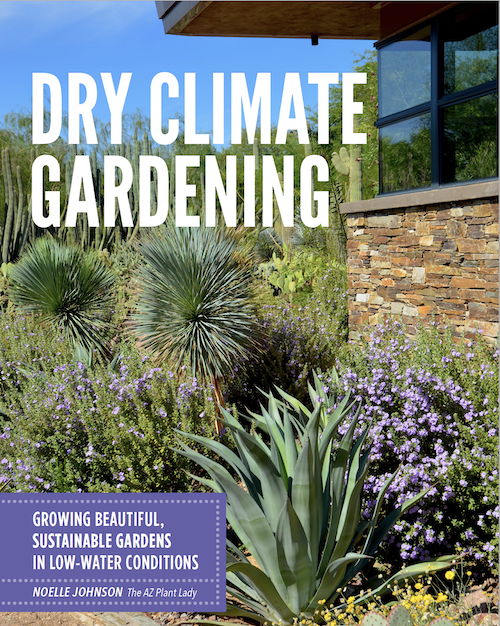


Only in a cool greenhouse have I overwintered peppers and tomatoes — and eggplant.
This year the only plant is an 8' tall tomato propped in a corner and loaded with fruit. It started as a sucker in the axil of one of my summer plants. Rooted and potted it exceeded all expectations.
I find 32F is a good average of when many plants need protection, but warm season vegetables, chiles, melons, etc. with more tropical genes can get damaged in the 35-40F range – even a bit higher if there are colder, drier winds with it. Though I've never gardened in a place as mild in winter as Phoenix, where overwintering has a chance!
I live in zone 9 in south Texas, so I am able to overwinter most things. I did learn my lesson about not protecting tomatoes when temps dipped to the low 30s. Now it's better safe than sorry! So far, this year has been strange. Cooler than normal, than warmer than normal.
This year I kept a couple tomato plants in the greenhouse, and one is still hanging on and making tomatoes! I brought some pepper plants in, too, but they got aphids on them so they are not doing so well. I'm sure you enjoy having so many fresh veggies throughout the year! It will be a long time before my next garden season up here in MA.
I know I’m a few years late to the party, but if you cut your pepper plant down to only 3-4 inches high (yes, just a stem) you’ll get a huge plant the next year.
Great advice, Bryan! I’ve done it many times with great results.
Peppers are perennial, so cut them back, add a bit of warmth in freezing temps, and a plant can last 4-5 years plus.